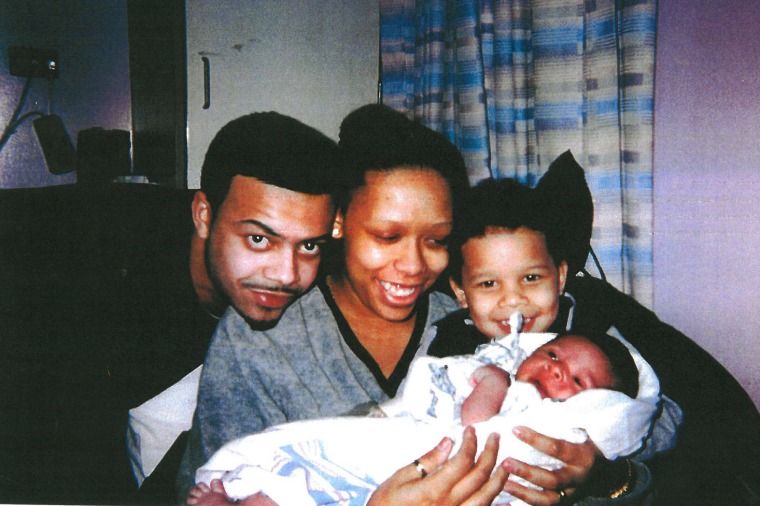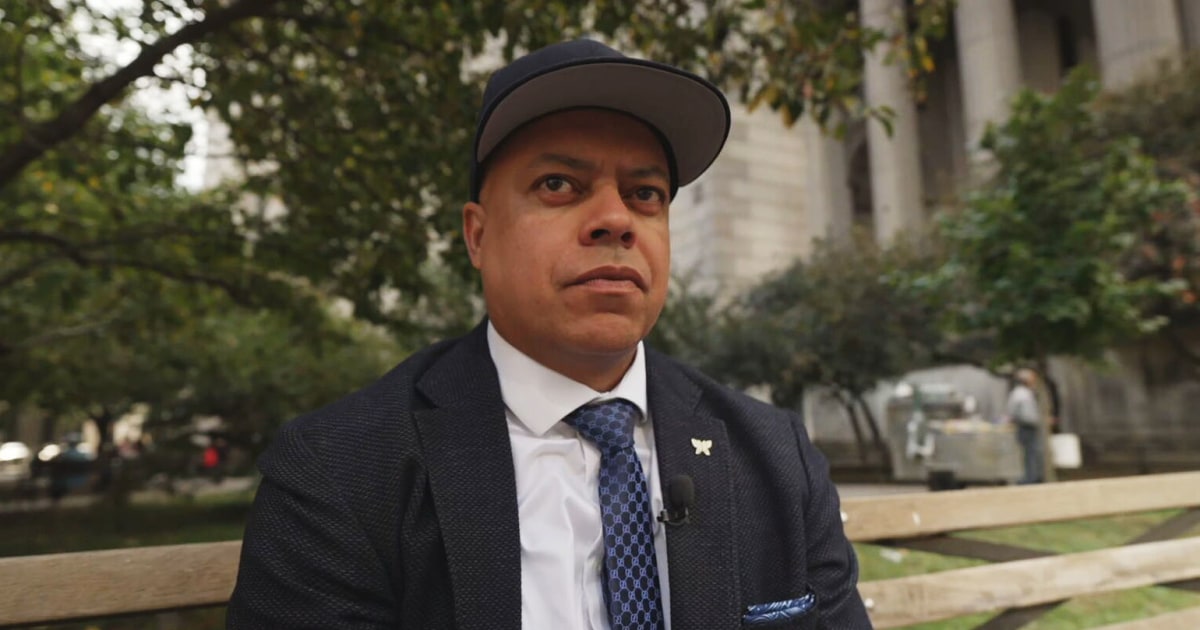Jon-Adrian Velazquez spent close to 27 years caught in the criminal justice system — nearly all of it behind bars in New York’s Sing Sing prison, convicted of a murder he insisted he did not commit.
It took just four minutes on Monday to clear his name.
During the swift proceedings in a Manhattan courtroom, a judge set aside the guilty verdict against Velazquez in the 1998 murder of a retired New York City police officer based on the consent of prosecutors — the same district attorney’s office that once put him behind bars. The office’s review of Velazquez’s conviction looked at several factors, including recanted eyewitness testimonies and DNA evidence.
Read more on this story at NBCNews.com and watch “NBC Nightly News with Lester Holt” tonight at 6:30 p.m. ET/5:30 p.m. CT.
“I do want to recognize the extraordinary achievements of Mr. Velazquez throughout the time he was incarcerated and since his release,” New York Supreme Court Justice Abraham Clott told a packed courtroom.
After he initially contacted NBC News producer Dan Slepian in 2002, Velazquez’s dogged endeavor to prove his innocence while incarcerated has been chronicled over the years by NBC’s “Dateline,” including in a 2012 investigation and the 2023 podcast “Letters from Sing Sing.”
In 2021, then-New York Gov. Andrew Cuomo granted Velazquez executive clemency, citing his work in Sing Sing on an educational initiative by those incarcerated to combat gun violence, and he was freed after serving almost 24 years of a 25-year-to-life sentence.
Inside the courtroom Monday, Velazquez, 48, hugged his family as his ordeal finally came to an end. Outside, surrounded by his mother, his two sons and a throng of supporters, he wore a baseball cap reading, “End of an error.” He kissed one of his sons on the forehead, savoring the feeling of being formally exonerated.
“For the first time I can breathe,” said Velazquez, who goes by the name JJ.
He later told NBC News anchor Lester Holt that he is no longer defined by being a prisoner.
“When we’re taken through the system, they strip you of your identity, they put you in a shower, butt naked, shave all your clothes, hose you down like a slave, and then they give you a number and brand you,” Velazquez said. “And that wasn’t who I was. And I’ve been fighting for 27 years to tell them that my name is Jon-Adrian ‘JJ’ Velasquez.”

Velazquez was 22 when he was arrested in the shooting death of retired police officer Albert Ward at an illegal gambling parlor in Harlem.
He was accused of pulling the trigger, but said he had an alibi: He said he was on a 74-minute phone call with his mother. Another man identified as one of two armed robbers pleaded guilty to a single count of robbery in the second degree and was released in 2008.
Velazquez’s attempts over the years to get his conviction vacated were all denied. But in 2022, the Manhattan district attorney’s Post-Conviction Justice Unit agreed to reinvestigate, including examining any DNA on a known betting slip that Ward’s shooter had handled — testing that was unavailable at the time of the incident.
The results determined Velazquez’s DNA was not on the key evidence.
The office of Manhattan District Attorney Alvin Bragg said it believed the DNA test results would have played a role in how the jury evaluated the case, including Velazquez’s alibi claim and the fact that eyewitnesses at the scene provided inconsistent descriptions of the perpetrator.
In the past two years, Bragg said, the unit has vacated 10 convictions through reinvestigations and 500 more related to law enforcement members convicted of misconduct.
“These convictions have deep consequences for individuals and their loved ones, compromise public safety, and undermine trust in the criminal justice system, which is why this work is of the utmost importance to me,” he said in a statement Monday. “We will continue to review these types of cases with the thoroughness and fairness they require.”
Since his release from prison, Velazquez has used his experience to become an advocate for criminal legal reform and even played himself in the 2023 drama “Sing Sing,” based on an actual Rehabilitation Through the Arts program at the prison. The podcast “Letters from Sing Sing” was a finalist for a 2024 Pulitzer Prize in audio reporting and Slepian’s book about the case, “The Sing Sing Files: One Journalist, Six Innocent Men, and a Twenty-Year Fight for Justice,” was released this month.
“Well, besides my mother, Dan’s my hero,” Velazquez told Holt. “Everybody knows that. Like if it wasn’t for Dan, I’d still be sitting in a cage.”
But despite the renewed attention and relief, there was one thing that the judge didn’t offer Velazquez when he addressed him on Monday: an apology.
Velazquez said he missed years of his sons’ lives and felt helpless when his mother had a heart attack in 2018, all while locked up for someone else’s crime.
“Four minutes after 27 years, no apology,” Velazquez said.
The judge “talked about celebrating,” he added, “after that same courtroom destroyed my life. This isn’t a celebration. This is an indictment on the system.”


